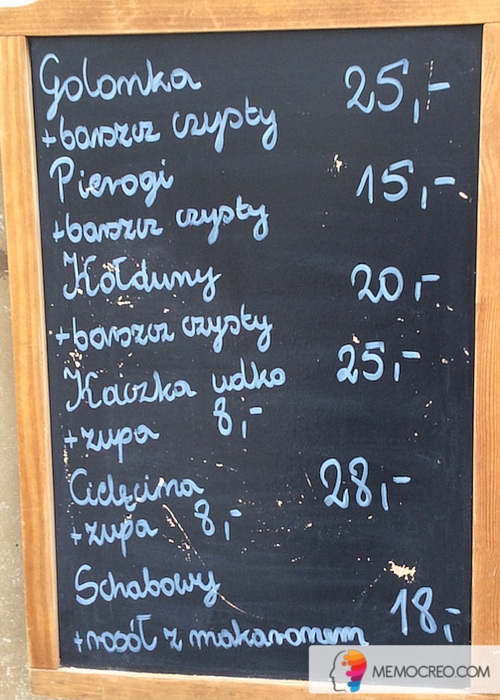
Are you thinking of visting Poland? Do you want to come as a tourist, to study or to work? This quick guide can definitely help you in getting to know the basic pros and cons of living in Poland.
Poland is a country in Central Europe. Polish is the official language of Poland, which has a population of around 38,5 mln people.
The capital is Warszawa (in english Warsaw) and the currency is Złoty (called also zloty). Poland has been a member of the European Union since 2004 and of NATO since 1999.
Pros:
+ Poles are multilingual and friendly
Young Poles definitely know other languages – at schools secondary language is compulsory – most often this is English. Older generations are more likely to know Russian due to our history. So if you are asking for directions and need a help in English my advice is to pick somebody younger. If you are from Slovenia, Czech, Slowakia, Serbia or Russia. there is a big chance communication will go rather smoothy.
Poles are very friendly and hospitable. If you need help, you will not have to wait long. Polish people are also open minded, talkative and well educated.
- Still high bureaucracy
Although many improvements have been made, there is still a high level of bureaucracy. There are many regulations and documents you have to fill in, especially when you want to set up your own company. The level of customer service is improving and if I can share on my personal experience - it is becoming better.
+ Poland is beautiful!
Poland has beautiful landscapes- lakes, woods, plains and mountains. For sure, you will not be bored. Many beautiful cities (Kraków, Poznań, Wrocław, Warszawa or Gdańsk are waiting for you). The same goes with smaller towns and villages. Unfortunately many historical structures were destroyed during the Second World War but some of them were restored, like Wawel Castle in Kraków, or reconstructed – the Old Town and Royal Castle in Warsaw or old towns in Wrocław and Gdańsk.
- Climate
If you are used to warm and mild weather, cold winter days could be difficult. However, I must admit, recent winters have been rather mild and days with temperatures below zero Celsius degrees not so common. But even if it gets really cold, you can get used to it and like the diversity of the Polish climate with cold winters and warm summers.

+ Affordable accommodation and food
Compared to West European cities, food, clothes or renting a flat is cheaper. For example, in Warsaw, a good meal with meat costs around 20-30 zlotys, which is about 5 -7 euros. During office hours lunch is cheaper (I know the place in Warsaw centre where you can buy a decent dinner only for 15 zlotys which is 3-4 euros). In smaller, less tourist-oriented towns, prices are even lower.

Prices in ta very popular area of Warsaw (The Old Town - Freta Street)
- Quality of the public healthcare
Health care in Poland is delivered through a publicly funded health care system, which is free as long as you have the health insurance paid for by the employer, or are the spouse or child of an insured person. The common public access to doctors and hospitals results in long queues to see a specialist or get an operation. The conditions in many public hospitals could also be better.
+ Affordable and good quality of public transport
If you are in big, touristic cities, you can use various means of public transport – buses, trams, urban line trains and in Warsaw there are two lines of Metro. The national rail network is also well developed and the standard of travelling improved.

- Road infrastructure is not very good in comparison to Western Europe.
New motorways and expressways have been recently built last years thanks to the European Union grants. But still many roads, especially in the Eastern Poland are not good enough in comparison to Western Europe. If you want to enjoy beautiful Polish countryside you should definitely use your own car or you can always rent one.
+ Great Polish food and culture
Polish food is great. Period. There are so many traditional dishes cuisine thst you should definitely giev a try. The most famous are pierogi (dumplings), gołąbki (cabbage with minced meat), bigos (cabbage stew), żurek (sour rye soup) and schabowy (pork breaded cutlet).
Culture is very diverse, you can find many museums, colourful buildings and monuments. If we talk about music, you will discover famous composers like Fryderyk (Frédéric) Chopin, Karol Lipiński, Witold Lutosławski or Leszek Możdżer just to name a few, and local music bands from many music genres: trance, techno, house, heavy metal or lighter genres like disco.
- Polish language can be difficult to learn
Well, it is commonly argued that the Polish language is one of the most difficult on the planet, but nobody has proven that. It depends on where you are from, so what your liguistic background is, if you have a motivation to learn or have a good method for it. But you know, here we are! We are here to help you in that!
Summing Up
There is no one ideal place to live on the planet. Poland also isn't such a place and there are pros and cons of living here. But it depends on you, on your personal goals and the level of curiosity you have about learning about new cultures, places and people. The diversity of this beautiful country can't be described in just one article, so we will be writing much more about Poland in upcoming posts. For now, I can warmly invite you to check for yourself that Poland is worth visiting !
Get FREE Polish Language Video Course
Start learning Polish Language!
also get Polish language tips & tricks

